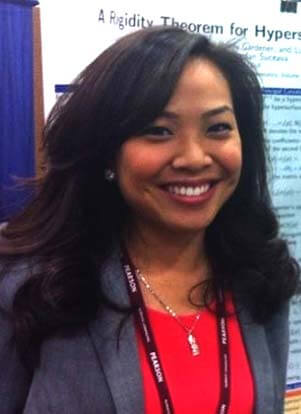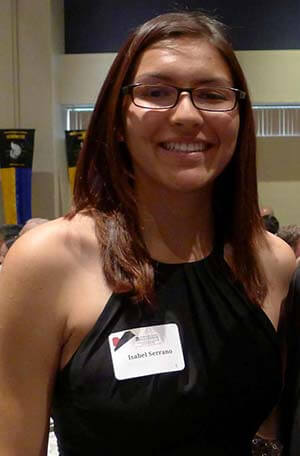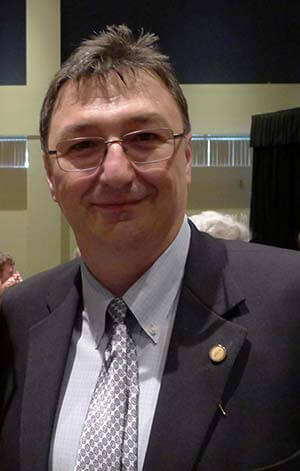

When mathematics alumna Lucy Odom became part of a collaborative research project on the history of mathematics as described by Isidore of Seville’s work in the seventh century, she never expected to receive accolades.
Isidore of Seville, a Catholic saint, wrote “Etymologies,” an encyclopedia that was circulated widely for many centuries during the medieval period. It has been characterized as a compilation of all human knowledge.
Odom, alumna Isabel Serrano, now pursuing a doctorate in computational biology at UC Berkeley, and their faculty mentor Bogdan Suceavă are co-authors of the article “Quadrivium: The Structure of Mathematics as Described in Isidore of Seville’s Etymologies” published in “The Best Writings on Mathematics 2018” by Princeton University Press. This annual anthology brings together the finest mathematics writing from around the world.
“What I found most interesting was how developed mathematics was during that time period and how much research in mathematics has evolved throughout the centuries,” said Odom, who earned her bachelor’s degree in 2013 and master’s degree in mathematics from San Francisco State University.
Odom, who teaches mathematics at Santa Monica and Long Beach City colleges, added that her role in the project was to read literature and help write and proofread the article.

This is the second time Suceavă and Serrano ’18 (B.A. mathematics-applied) have had their work published in the prestigious journal. Their earlier research on “A Medieval Mystery: Nicole Oresme’s Concept of Curvitas” was published in Princeton’s 2015 “Best Writing on Mathematics.”
Suceavă, professor of mathematics, relays that math is not an “isolated body of lifeless formulae.” “It’s highly beneficial to my students to experience this humanistic component of mathematics and see how behind any concept, there is a story,” he said.
The trio’s research delves into how Isidore described mathematics, which in Latin, means “the science of learning,” and how mathematics was presented in the early medieval period.
“Of particular interest to mathematicians is the fact that this early encyclopedic work implicitly includes a description of mathematics, as understood in Isidore’s times,” Suceavă added.

Odom’s countless hours of research on this paper, as well as other research projects, prepared her for graduate school — and paid off.
“Dr. Suceava has been with me from the very start of my mathematical career. He has taught me so much in the classroom and outside of the classroom. He has opened up many doors for me to grow both academically and professionally,” said Odom, a co-author on six journal papers with Suceavă. “I was very fortunate that he asked me to join him for this particular piece.”